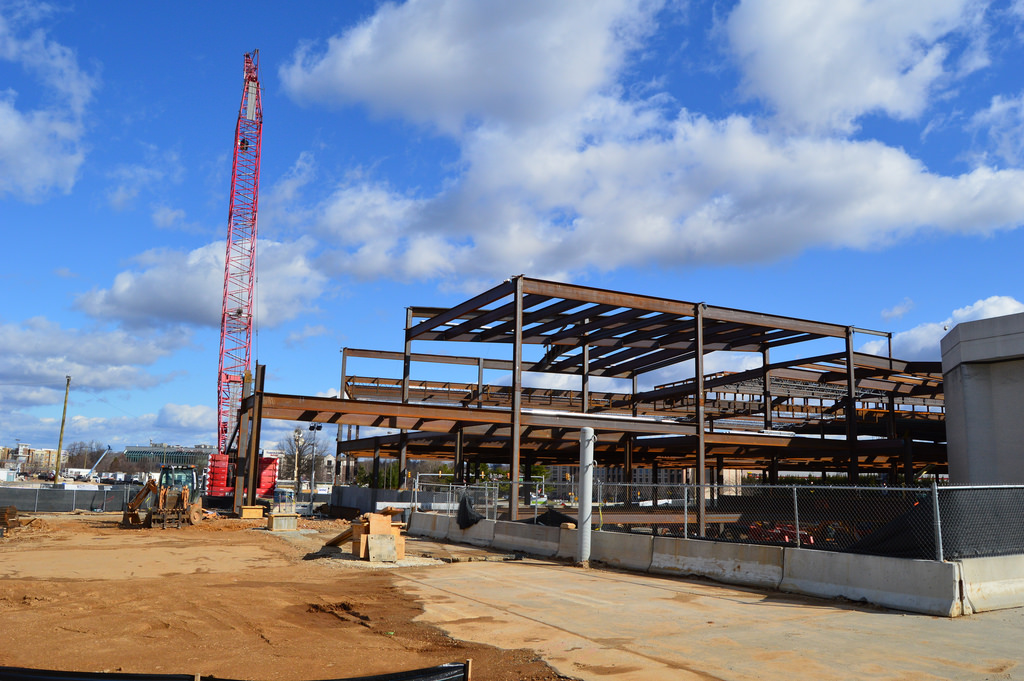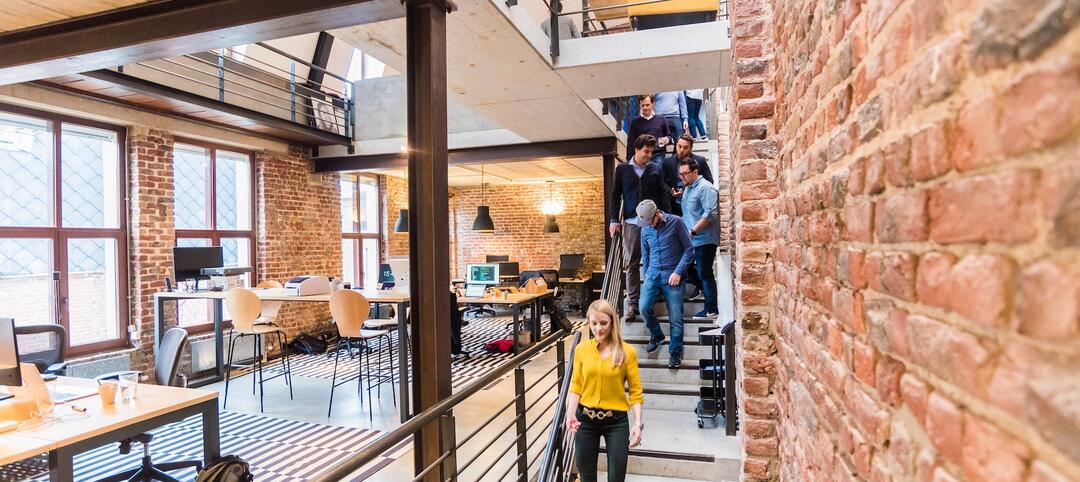The Architecture Billings Index (ABI) reflects sustained demand for design services in nearly all nonresidential project types over the nine to twelve month lead time between architecture billings and construction spending.
The American Institute of Architects (AIA) reported the July ABI score was 54.7, down a point from a mark of 55.7 in June. This score still reflects an increase in design services (any score above 50 indicates an increase in billings).
The new projects inquiry index was 63.7, up slightly from a reading of 63.4 the previous month.
“On top of what has been a flurry of design activity in recent months, some architects are reporting a break in the logjam created by clients placing projects on hold for indefinite periods, which bodes well for business conditions in the months ahead,” said AIA Chief Economist Kermit Baker, Hon. AIA, PhD. “There is some uneasiness in the design community that rapid growth in construction costs could escalate beyond development capital and municipal budgets, which could trigger some contraction in the marketplace down the road.”
July ABI highlights:
- Regional averages: Midwest (58.2), South (55.7), West (53.8) Northeast (53.5)
- Sector index breakdown: institutional (57.3), mixed practice (56.8), commercial/industrial (53.4) multi-family residential (49.8)
- Project inquiries index: 63.7
- Design contracts index: 54.5
The regional and sector categories are calculated as a three-month moving average, whereas the national index, design contracts and inquiries are monthly numbers.
Related Stories
Resiliency | Sep 30, 2022
Designing buildings for wildfire defensibility
Wold Architects and Engineers' Senior Planner Ryan Downs, AIA, talks about how to make structures and communities more fire-resistant.
| Sep 30, 2022
Manley Spangler Smith Architects partners with PBK in strategic merger
Manley Spangler Smith Architects (MSSA), a Georgia-based, full-service architectural firm specializing in educational and municipal facilities, announced today a significant development aimed at increasing its capabilities, expertise, and suite of services.
| Sep 30, 2022
Lab-grown bricks offer potential low-carbon building material
A team of students at the University of Waterloo in Canada have developed a process to grow bricks using bacteria.
| Sep 29, 2022
FitzGerald establishes Denver office
The new location bolsters FitzGerald’s nationwide reach and capitalizes on local expertise and boots-on-the-ground to serve new and existing clients seeking to do business in Denver and the Front Range, as well as the Southwest United States, California, and Texas.
| Sep 28, 2022
New digital platform to foster construction supply chains free of forced labor
Design for Freedom by Grace Farms and the U.S. Coalition on Sustainability formed a partnership to advance shared goals regarding sustainable and ethical building material supply chains that are free of forced labor.
| Sep 27, 2022
New Buildings Institute released the Existing Building Decarbonization Code
New Buildings Institute (NBI) has released the Existing Building Decarbonization Code.
| Sep 23, 2022
High projected demand for new housing prompts debate on best climate-friendly materials
The number of people living in cities could increase to 80% of the total population by 2100. That could require more new construction between now and 2050 than all the construction done since the start of the industrial revolution.
| Sep 23, 2022
Central offices making a comeback after pandemic
In the early stages of the Covid pandemic, commercial real estate industry experts predicted that businesses would increasingly move toward a hub-and-spoke office model.
| Sep 22, 2022
Gainesville, Fla., ordinance requires Home Energy Score during rental inspections
The city of Gainesville, Florida was recently recognized by the U.S. Dept. of Energy for an adopted ordinance that requires rental housing to receive a Home Energy Score during rental inspections.
| Sep 21, 2022
New California law creates incentive for installing outdoor dining safety barriers
A new California law provides an incentive for commercial property owners to install barriers to protect outdoor diners.

















